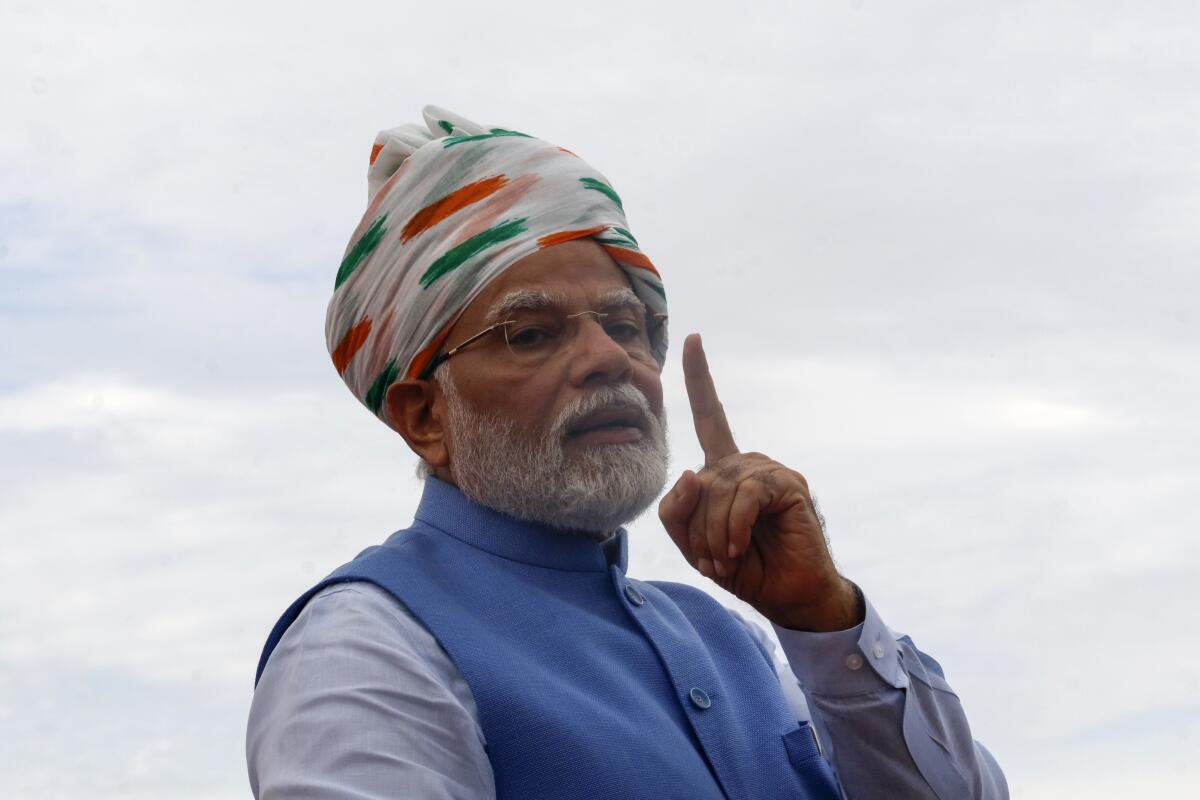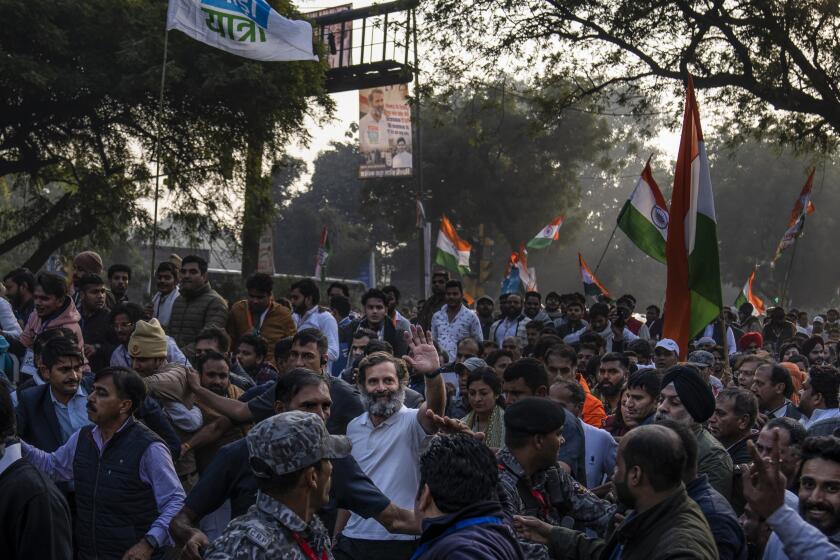After airing program critical of Modi, the BBC is accused by India of tax evasion

- Share via
NEW DELHI — India’s Finance Ministry accused the BBC of tax evasion Friday, saying that the broadcaster had not fully declared its income and profits from its operations in the country.
Indian tax authorities ended three days of searches of the British public broadcaster’s New Delhi and Mumbai offices Thursday night. Opposition political parties and other media organizations have criticized the searches as an attempt to intimidate the media.
Critics of Prime Minister Narendra Modi have questioned the timing of the searches, which came weeks after the BBC aired a documentary in Britain that was critical of Modi.
“The department gathered several evidences pertaining to the operation of the organization which indicate that tax has not been paid on certain remittances which have not been disclosed as income in India by the foreign entities of the group,” the Central Board of Direct Taxes said in a statement.
It said they found “several discrepancies and inconsistencies“ and had gathered “crucial evidence” from employee statements, digital data and documents that would be examined more fully later.
The statement also accused the BBC of not paying full taxes on the earnings of employees who came from abroad and worked in India for short durations.
As a billionaire close to the prime minister nears acquisition of NDTV, India’s last independent mainstream TV network, many fear for journalism.
There was no immediate comment from the BBC. It said Thursday that it would continue to cooperate with Indian authorities and hoped that the matter could be resolved as soon as possible.
The Press Trust of India news agency cited unnamed officials as saying Thursday that investigators had collected financial data from some BBC staff members and made copies of electronic and paper data from the news organization.
It said the investigation was looking at issues related to international taxation and transfer pricing of BBC subsidiary companies.
The leader of India’s main opposition Congress party, Mallikarjun Kharge, has described the search of the BBC offices as an assault on freedom of the press under Modi’s government.
Rahul Gandhi says India’s right-wing government is dividing the country along religious lines. Followers hope his cross-country march can save democracy.
Reporters Without Borders, an international media watchdog, denounced the government’s action as “attempts to clamp down on independent media.”
“These raids have all the appearance of a reprisal against the BBC for releasing a documentary critical of Prime Minister Narendra Modi three weeks ago. They have come at a time when independent media are being hounded more and more, and when pluralism is shrinking in India due to increased media concentration,” the group said in a statement Thursday.
The documentary, “India: The Modi Question,” was broadcast in Britain last month. It examines the prime minister’s role in the 2002 anti-Muslim riots in the western state of Gujarat, where he was chief minister at the time. More than 1,000 people were killed in the violence.
Modi, who leads a Hindu nationalist party, has denied allegations that authorities under his watch allowed and even encouraged the bloodshed, and the Supreme Court said it found no evidence to prosecute him. Last year, the court dismissed a petition filed by a Muslim victim questioning Modi’s exoneration.
News Alerts
Get breaking news, investigations, analysis and more signature journalism from the Los Angeles Times in your inbox.
You may occasionally receive promotional content from the Los Angeles Times.
The program drew an immediate backlash from India’s government, which invoked emergency powers under its information technology laws to block it from being shown in the country. Local authorities scrambled to stop screenings organized at Indian universities, and social media platforms including Twitter and YouTube complied with government requests to remove links to the documentary.
The BBC said at the time that the documentary was “rigorously researched” and involved a wide range of voices and opinions.
“We offered the Indian Government a right to reply to the matters raised in the series — it declined to respond,” its statement said.
India’s Foreign Ministry called the documentary a “propaganda piece designed to push a particularly discredited narrative” that lacked objectivity.
More to Read
Sign up for Essential California
The most important California stories and recommendations in your inbox every morning.
You may occasionally receive promotional content from the Los Angeles Times.












